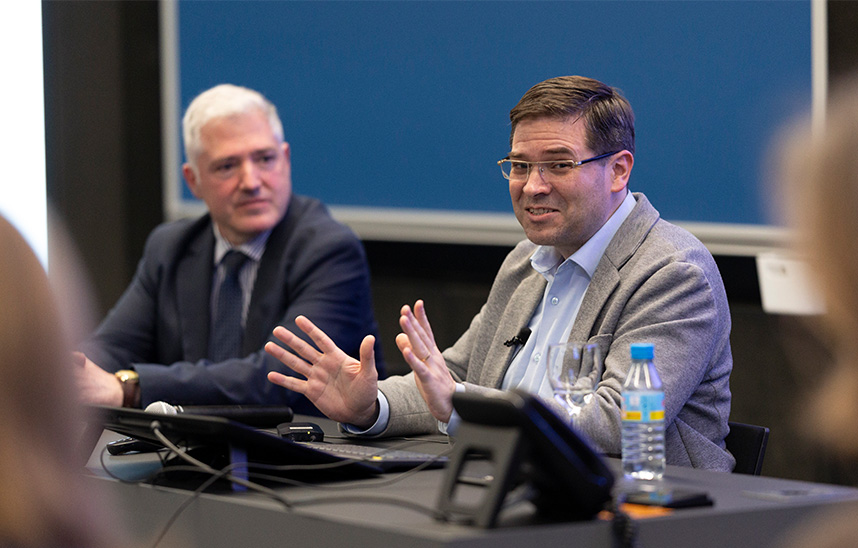"Poland has always resisted tyranny through underground struggle and works such as those of these authors."
The University of Navarra hosts the presentation of the trajectory and work of four outstanding Polish writers of the 20th century.

"During the first decades of the 20th century, under the yoke of Nazism and Communism, in tragic circumstances and harassed by the authorities, four Polish writers stood firm in their convictions. With their pens, they contributed to forge in Polish society an attitude of resistance to tyranny and solidarity with the persecuted". This is how Higinio J. Paterna, translator of Polish literature and delegate of Navarra in Poland, describes Zofia Kossak, Antoni Ossendowski, Józef Mackiewicz and Tadeusz Dołęga-Mostowicz. Paterna has brought these authors out of anonymity, beyond the borders of their country, with the translation into Spanish of some of their works.
The most relevant ones, as well as their trajectories, have been presented in a meeting organized by the Master's Degree in Christianity and Contemporary Culture of the University. The session has counted with the partnership of the Polish Embassy in Spain and the Polish Institute of Culture in Madrid. "The biographies of these authors are part of the clandestine struggle that Polish society has maintained in the face of tyrannies throughout its history," said speaker.
Thus, in Nazi-occupied Europe, Zofia Kossak founded the only institution dedicated exclusively to saving Jews from the Holocaust. Imprisoned in Auschwitz, she was condemned to death and rescued at the last moment. Exiled, the communist authorities forbade the dissemination of her works. One of them, "Happy Guilt", which has been presented in the session, "is especially characterized by highlighting the Polish tradition of religious tolerance, a unique phenomenon in the Europe of that time", as Paterna explained.
Ferdynand Ossendowski is another of the writers whose figure was discussed at the session. Author of a novel biography of Lenin, he was, for a time, the fifth most translated writer in the world. In his eagerness to defend his country, he fought with the White Army during the Russian revolution. For his part, Józef Mackiewicz, the third of the authors on display, was the first to inform the world about the Katyn graves. As Paterna recounted, "he preferred to live poor in exile in Munich than to lose his freedom of expression. Intransigent when it came to his convictions, he was nominated for the Nobel Prize for Literature, but had his candidacy withdrawn".
During the session, the figure of Tadeusz Dołęga-Mostowicz, a veteran of the Polish-Bolshevik war, was also exposed. His novel "The Healer" achieved the greatest success publishing house and cinematic success in interwar Poland. Adapted by Netflix recently, it has been very well received by the streaming platform's audience.
Higinio Paterna has been living in Poland for 27 years, where he works as delegate of Navarra. In addition to accompanying prospective students and their families at admissions process, giving information sessions at educational centers and participating in promotional events, he translates works from Polish to Spanish. He assures that his work as a translator "means being a bridge between people and cultures" that allows him to make known authors who are in oblivion, such as those presented in this session.




